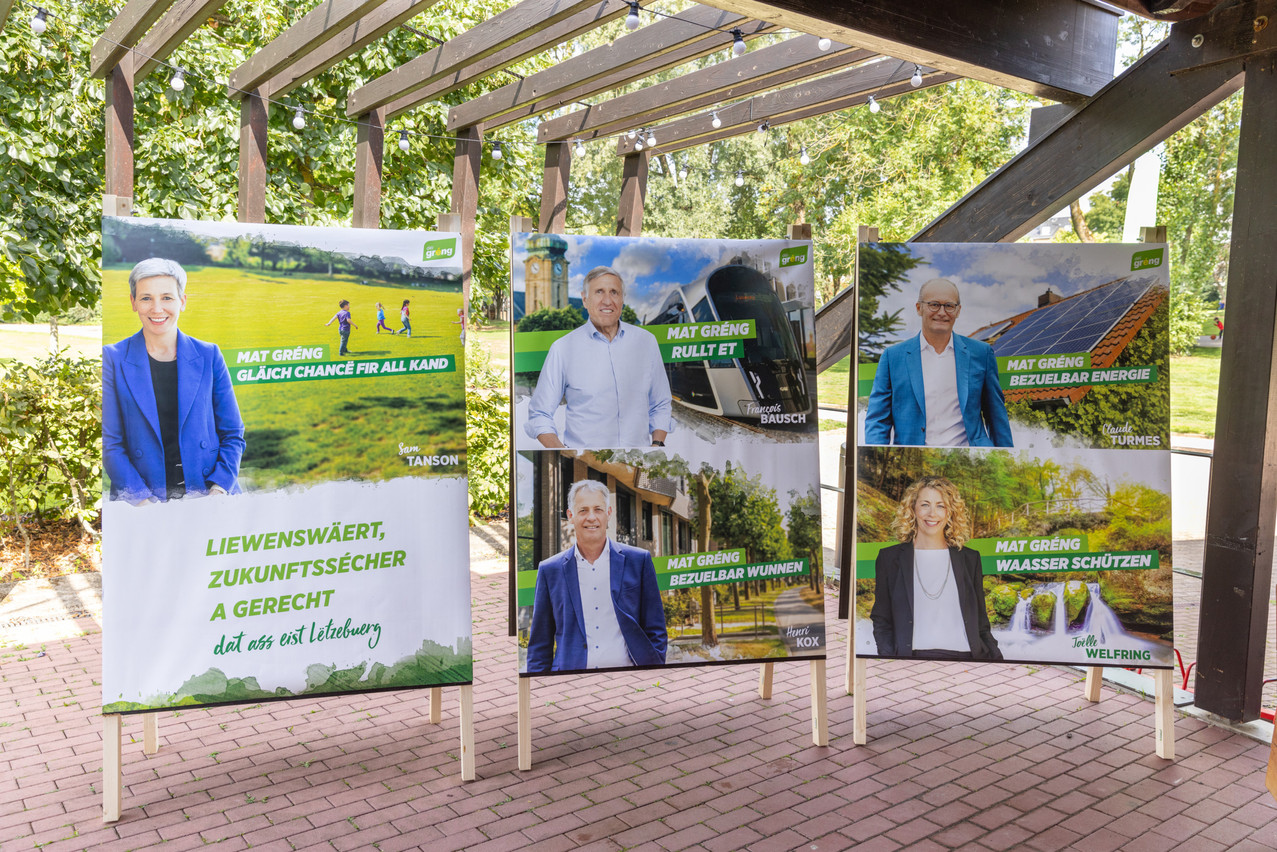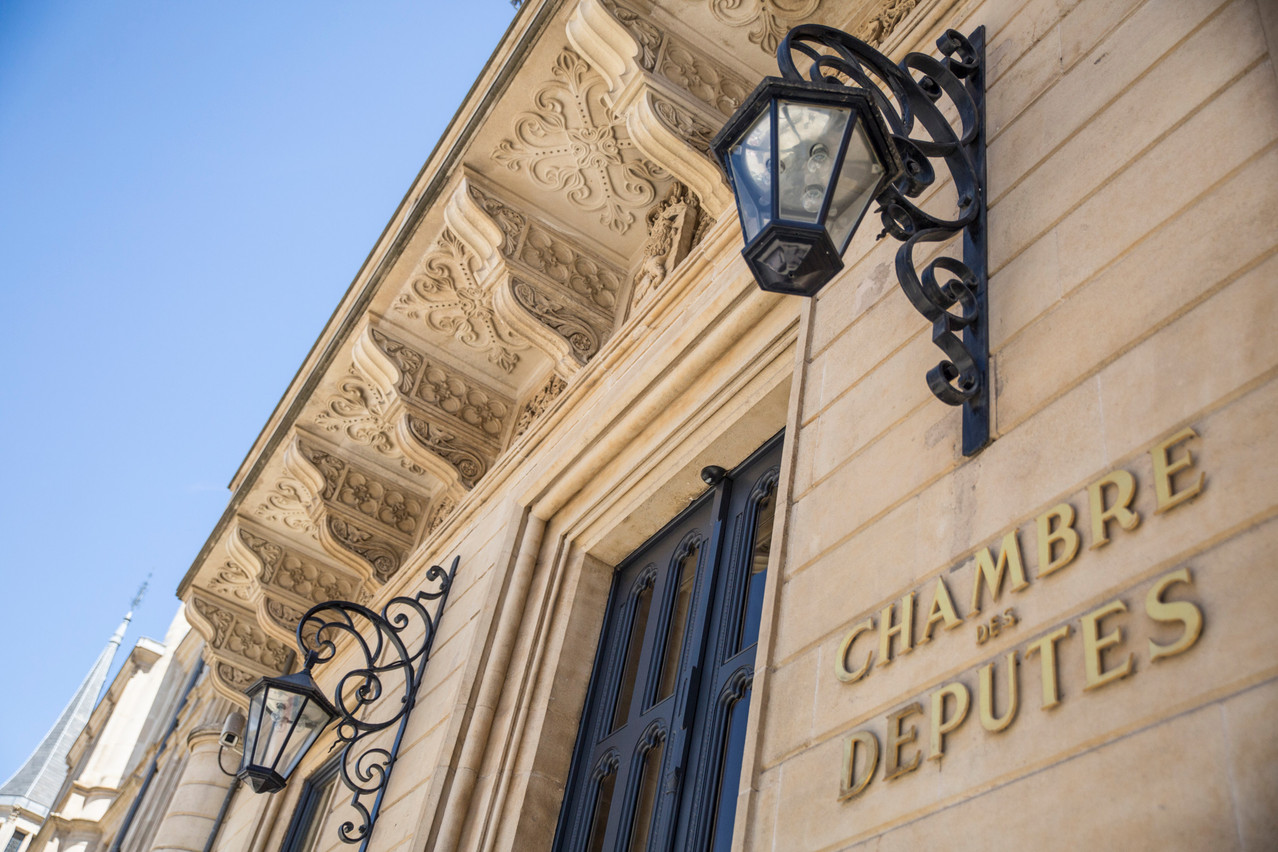Without going back to the dawn of time, campaigns for the legislative elections have always been tough and given rise to some good battles. But though the results were often close, they were not awaited with apprehension. Until 2013, the key issue in general elections was who would come second, and could therefore become the coalition partner of the CSV, the central party on the political spectrum. Since 1945 and the Dupong government, the Christian Social Party has been in power without interruption until 2013, with the exception of the Thorn government dominated by the DP between 1974 and 1979.
But this year, faced with a growing number of crises, voters are worried. Very worried.
All the were aware of this concern. Of course, people stopped by the stands to shake hands and support their champions. Some also came to find out more about the programmes and candidates, many of whom were unknown to the general public. Others went around the stands to collect goodies. But many stopped not to ask for anything, but rather to talk about their personal, concrete problems. In the face of this anxiety, the winners will be those who can convince voters of their ability to prepare the country properly for future crises.
The consumer confidence indicator drawn up by Luxembourg’s central bank (BCL) and published on 6 September . However, the index remains largely negative (-14 in August) and has been for over two years. And what is dragging the index down are households’ expectations of the country’s general economic situation and changes in purchasing power.

The déi Gréng candidates have unveiled their official posters. Photo: Romain Gamba/Maison Moderne
The to be published before the election shows the CSV and LSAP as the potential winners. Between them, they could form a majority government. As could the outgoing coalition, despite the Greens’ loss of momentum. (DP) remains the favourite for the post of prime minister (34% hold a favourable opinion), followed by (CSV) at 21%, (LSAP) at 20% and (déi Gréng) at 5%.
On 5 September, déi Jonk Gréng launched its campaign. The difference between an old Green and a young Green? “A question of perspective,” according to and Amy Winandy, the movement’s two spokespersons. They set out their priorities--the same as those of their elders--but with an emphasis on supporting young people. On 31 August, déi Gréng launched its campaign and unveiled its posters. It promises to be a difficult campaign, despite an honourable record.
To combat the “green bashing” that is taking hold, particularly in economic circles, the government has made a number of promises: the introduction of a “Green New Deal” for Luxembourg and the creation of a “Climate Savings Book” to finance the energy transition for children; the creation of 800 new affordable flats each year “without giving tax breaks to developers;” a reform of property tax to mobilise more land; new investments in renewable energies, nature conservation and mobility. The social aspect has not been forgotten, with basic child protection and discussion of a wealth tax.
Bettel urbi et orbi
Prime minister Bettel was omnipresent at the braderie. Having returned from a whirlwind trip from Romania on 5 September, the following day he received Iceland’s prime minister, Katrin Jakobsdottir. On the agenda: the Euro football qualifying match on Friday 8 September, education, cinema and bilateral relations. Convergence between the two countries for a strong, green, secure and competitive Europe, based on democracy, the rule of law and human rights.
On 6 September, the DP presented its “themes for the future” in the areas of housing, purchasing power, energy, work, family and education. “The DP is a social, ecological and liberal party that is close to you,” summarised Bettel and party secretary general (DP).
Among the promises made were the creation of a citizens’ fund, a “collective effort” to create housing; the extension of parental leave to three months and the right to work part-time for parents of children under the age of 13; greater flexibility in working hours through the annualisation of working hours; and the individualisation of taxation.
Controversy of the week
The controversy of the week was caused by déi Lénk. The target is the hunt for “neo-Luxemburgers” in Brazil and the United States. In 2008, Frieden, who was then minister of justice, introduced the recovery procedure into the law on nationality. This procedure makes it possible to recover Luxembourg nationality if you can prove that you had an ancestor who was a Luxembourg national in 1900. As a result, according to déi Lénk, “tens of thousands of people around the world have obtained Luxembourg nationality and therefore the right to vote, even though they have never been to Luxembourg and probably have no intention of ever coming here.”
These are votes that the major parties are seeking to win back. And it’s a move that is all the more scandalous for the left-wing party, given that “around 50% of Luxembourg’s inhabitants do not have the right to vote because they do not have Luxembourg nationality. Yet the bond between these people goes far beyond folklore and genealogy. It is forged on a daily basis. The people we are denying the right to vote live here, work here and are involved here, just like the rest of us. They are the first to be affected by the political decisions taken in Luxembourg, and for that reason they must be able to co-decide.”
This article was first published in French on . It has been translated and edited for Delano.
